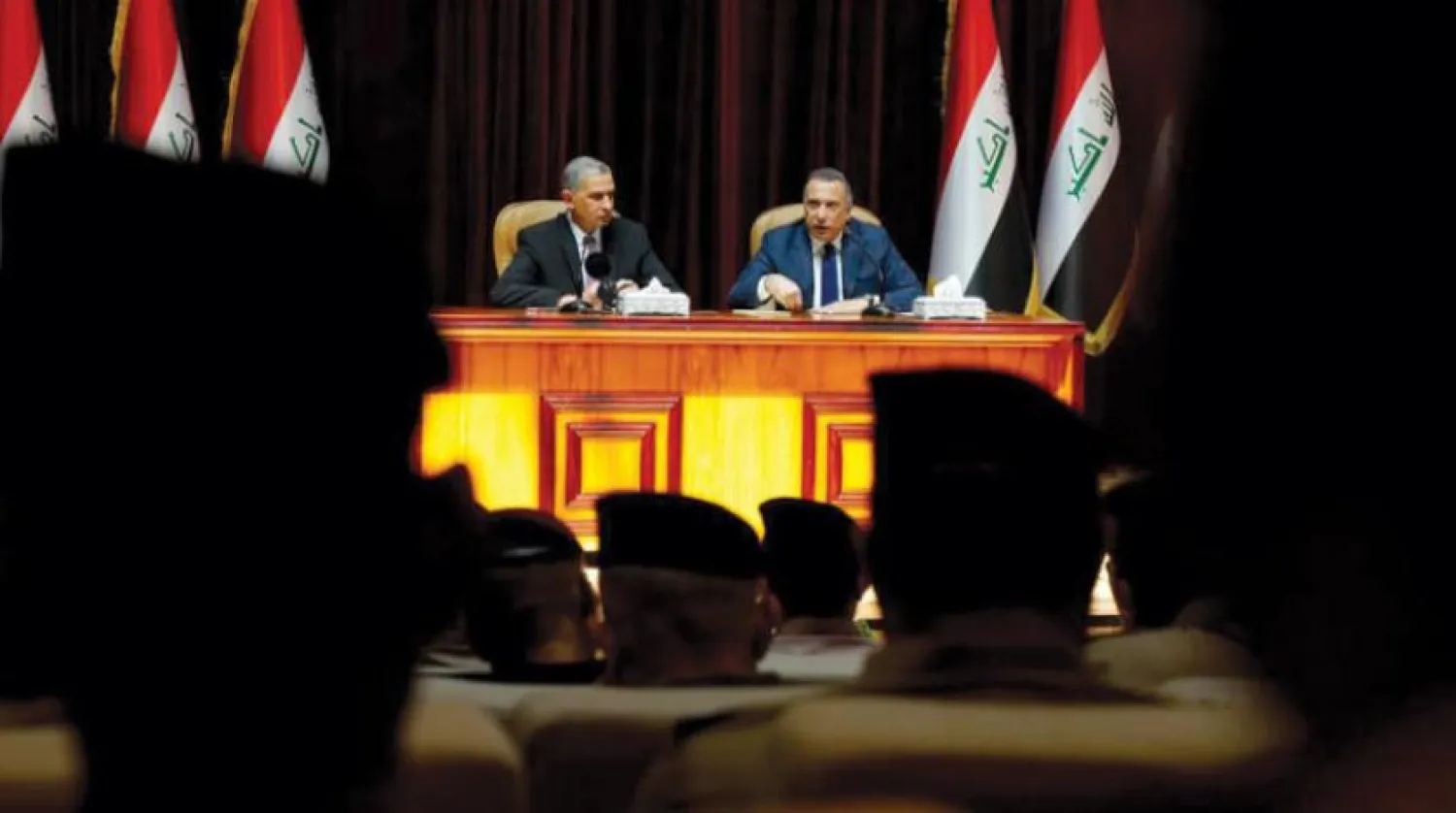Outgoing Iraqi Prime Minister Mustafa al-Kadhimi voiced his regret over the damage caused to the state by to the difficult political and social conditions experienced by the country over the past decades.
This has reflected badly on citizens’ trust in their state and has stirred a moral dilemma on dealing with intelligence and technology, he added during a visit to the headquarters of the Ministry of Interior and a meeting with Minister Othman al-Ghanmi.
“The security forces shall take their duties seriously and neglect will be confronted with accountability,” he said.
“Obviously, there are manifestations of corruption in the Iraqi state. It is a common phenomenon in post-dictatorship eras. It usually persists for some time before fading, but unfortunately, it remains in some of the Interior Ministry departments," acknowledged Kadhimi.
He referred to the great suffering that the Iraqi people experienced during the post-2003 years.
Kadhimi blamed internal and external conditions for draining Iraq’s human and economic potential.
The prime minister condemned last week's attack against a headquarters of the Kurdistan Democratic Party (KDP) in the Iraqi capital, Baghdad, stressing that the force on duty that stood idly while the attack took place will be held accountable.
The KDP suspended political activities in Baghdad after its office there was set on fire by supporters of pro-Iran parties and militias. This was the second attack targeting the headquarters in under a year.
Despite the challenges, Kadhimi considered that “the country is facing a real opportunity to consolidate security.”
“Our efforts can turn into an opportunity for success, and this is only done through loyalty to the Iraqi national identity,” he stressed.
The premier also spoke about the social risks posed by illicit drugs in the country.
“It is an epidemic that must be treated as terrorism. It is a dangerous scourge that we must not allow to infiltrate Iraqi society,” he emphasized.









